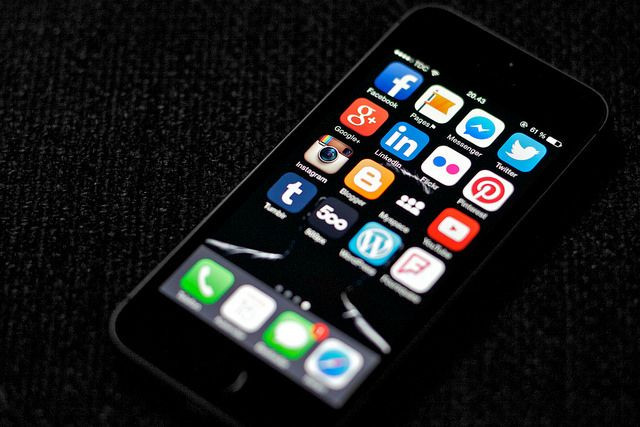Facebook Addiction' Activates Same Brain Areas As Drugs; How Social Media Sites Hook You In

The 2014 social media update from the Pew Research Center showed Facebook continues to be the most popular of the social media sites. Though platform growth has slowed, the level of user engagement has increased, researchers said. Seventy percent of Facebook users engage with the site daily while 45 percent do so several times a day — a 63 percent increase from 2013. More importantly, Facebook has significant overlap with other platforms. Fifty-two percent of online adults use two or more social media sites, another significant increase from 2013. But, are these increased numbers a sign of enjoyment or addiction?
Scientists have been investigating the idea of Facebook addiction for years now. In 2012, researchers from the University of Bergen conducted a first-of-its-kind study about the ways in which people develop Facebook dependency. The social nature of the site itself was considered problematic, especially for women, extroverts, and those unable to fall asleep until very late at night (people with a delayed sleep-wake rhythm), researchers said. The following year, researchers linked social media use to the reward center of the brain that's associated with preservation of our social reputation, whereas another preliminary study found compulsive Internet use may induce changes in some brain reward pathways that are similar to drug addiction.
It’s the element of compulsion that a new study published in the journal Psychological Reports: Disability and Trauma reinforces. Researchers asked 20 undergraduate students to fill out a questionnaire that gauged addiction-type symptoms associated with Facebook, including withdrawal, anxiety, and conflict over the site. Then, researchers used brain imaging to study participants’ brains while they looked at a series of computer images, such as Facebook logos and neutral traffic signs, and pressed (or didn't press) a button. The higher participants scored on the questionnaire, the more likely they were to hit the button (sometimes mistakenly) for Facebook when compared to the neutral images.
The Facebook cues were much more potent triggers in people’s brains than the traffic signs, study co-author Ofir Turel, a psychologist at California State University, Fullerton, told Live Science. He added that this compulsive relationship with the site means people are going to respond faster to beeps from their cellphone than to street signs: “That’s the power of Facebook.”
As for their actual brain, the brain scans showed that high-scoring participants experienced greater activation of their amygdala and striatum, the two brain regions involved in impulsive behavior. These patterns are on par with those who are addicted to cocaine. However, unlike drug addicts, “the brain regions that inhibit this behavior seem to work just fine.”
Even so, Live Science reported this study was limited. It involved a small group of participants with relatively low levels of Facebook “addiction,” and it may not be ideal toward this investigation into increased online use. Instead, other experts suggested “addiction” is likely a combination of "biological, psychological, social, and cultural factors."
Nir Eyal, a startup founder and author of Hooked: How to Build Habit-Forming Products, told Live Science that Facebook hooks people with a few different elements: “a trigger, such as loneliness, boredom, or stress; an action, such as logging in to Facebook; an unpredictable or variable reward, such as scrolling through a mix of juicy and boring tidbits in the newsfeed; and investment, which includes posting pictures or liking someone's status update.”
To go back to the 2012 study, researchers noted people who feel more anxious and socially insecure appreciate the easy ways to communicate via social media than face-to face. On the other hand, individuals who were more organized and ambitous were at a decreased risk for technology-related addiction as they resort to using the site as an integral part of work and networking.
However you Facebook, scientists continue to unravel how its popularity and availability promote use, thus impacting our brains, behaviors, and relationships. Maybe there’s something to those digital detoxes after all.
Source: Turel O, He Q, Xiao L, Bechara A. Examination of neural systems sub-serving Facebook “addiction.” Psychological Reports: Disability and Trauma. December, 2014.



























